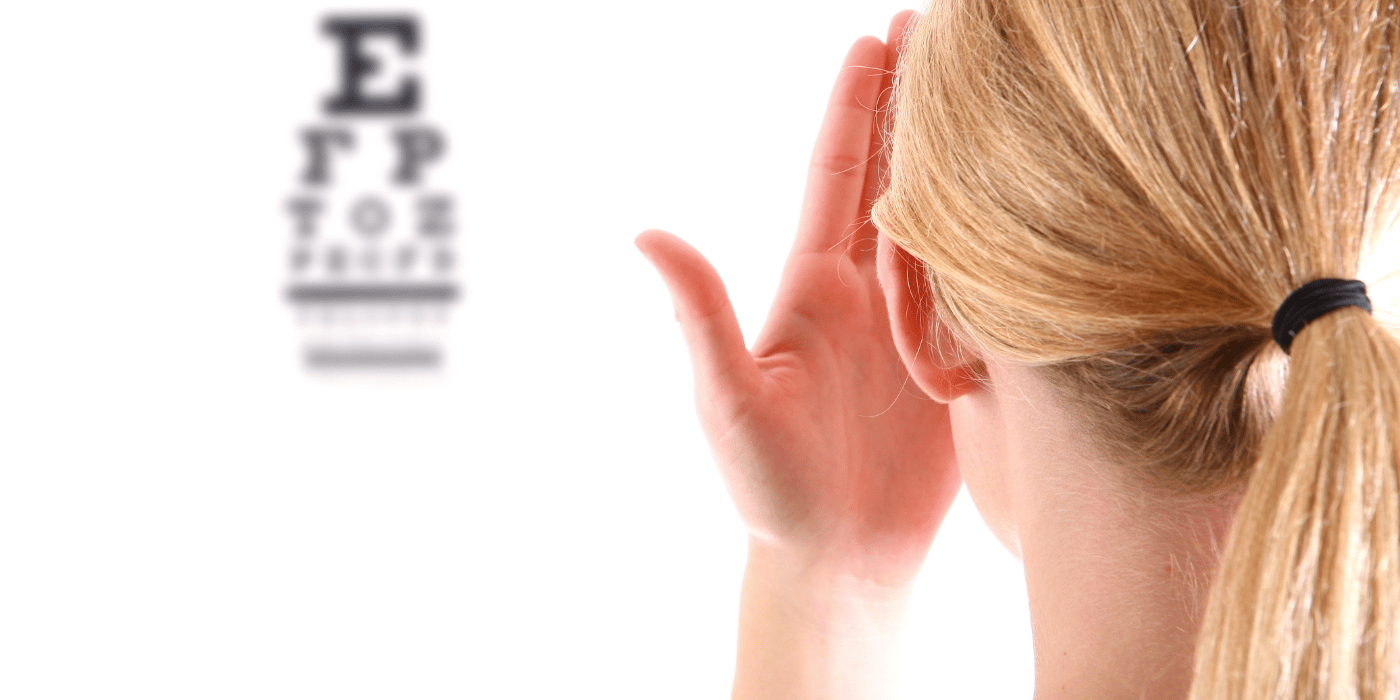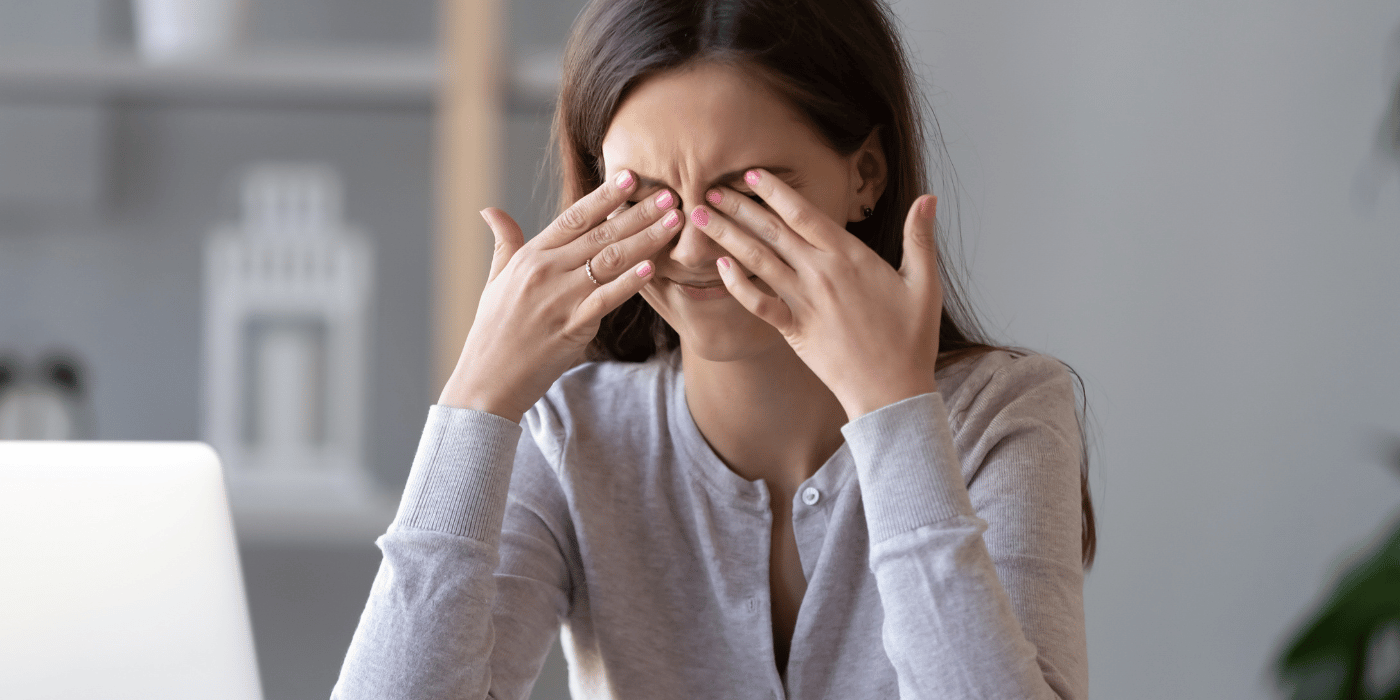
How Your Teen Can Support Their Eye Health: Our Top 6 Tips
As premium eye care experts, we know parents have a lot of questions about their child’s eye health. Can my child’s vision improve with age? Will my child need glasses forever? Why is my teen’s eyesight getting worse? What is normal eyesight for a 15-year-old? A 17-year-old?
Well, we’re here to tell you that maintaining the health of your teen’s eyes isn’t all about scarfing down carrots and religiously wearing blue light glasses (although both of these can help!).
The CDC states that about 11 million Americans over the age of 12 need vision correction. But the good news is there are many steps we can take to help preserve teens’ vision. Here are our top six tips for how your teen can support their eye health.

1. Schedule routine eye exams.
Just like regular teeth cleanings and a yearly physical, it’s important to make eye health a priority, too. Our eyes help us experience the world and learn to our full potential, so the teenage years are a crucial time to stay on top of eye health.
We recommend that teenagers come in for a comprehensive eye exam at least every two years, as long as their vision remains top-notch.
Teens who need glasses or contact lenses should come in annually or as recommended by our team of eye care professionals.
2. Learn how to recognize the warning signs of vision problems in teens.
In addition to regular eye exams, it’s important to know the early warning signs of vision problems. Early detection of vision problems is key to maintaining eye health.
The CDC has a list of symptoms that could indicate poor eye health. If your teen is experiencing any of these symptoms, schedule an appointment with Monocle as soon as possible:
- Decreased vision
- Draining or redness of the eye
- Eye pain
- Squinting
- Dry eyes
- Headaches
- Double vision
- Floaters
- Circles around lights
- Flashes of light

3. Limit screen time, if possible, to prevent eye strain.
It’s difficult for teens to step away from the screen today. After all, life in the 21st century practically revolves around screens, between online schooling, video games, and social media. Couple that with daily time spent out in the sun and it’s clear why so many teens experience vision problems.
We get it — it’s hard to keep kids away from technology, but limiting screen time will help relieve eye strain and the amount of blue light being absorbed into your teen’s eyes. We suggest avoiding screens within the first hour of waking, an hour before bedtime, and during dinner. Want to take it a step further? Establish screen-free Saturdays and spend the day exploring, working on a puzzle, or completing an outdoor activity instead.
Pro tip: Tell your teen about the importance of blinking—especially while using technology. It might sound simple, but staring at a screen for long periods of time can cause us to blink less. This can irritate or cause unnecessary strain on our eyes.
4. Keep blue light glasses handy for screen-time protection.
Technology isn’t all bad, so when your teen is in front of the screen, have a few pairs of blue light glasses on hand for extra protection. Come see our eye doctors and find the right pair for your teen.
We recommend keeping a pair in their backpack, another in their bedroom, and another wherever they like to hang out and watch TV. If the glasses are nearby, they’ll surely be used more often.
Pro tip: Keeping your glasses clean and smudge-free is just as important as wearing them. Talk to your teen about how to properly clean and store their glasses when they aren’t using them.

5. Protect against UV rays.
Even in the winter, radiation from the sun can damage our eyes if we aren’t taking precautionary measures. The CDC recommends wearing sunglasses that block out 99% or 100% of both UVA and UVB radiation. And while our kids can’t wear sunglasses during every outdoor activity, try to keep a couple pairs handy for long car rides and time spent playing outdoors.
Pro tip: Do you have a pool at home? We recommend purchasing a few pairs of swim goggles with built-in UV protection for sunny days spent in the water.
6. Teach your teen about the 20/20/20 rule.
The National Eye Institute teaches the 20/20/20 rule to help give tired eyes a rest. The rule states that for every 20 minutes you use a screen, spend 20 seconds looking at something about 20 feet away. This will give your overworked eyes a rest while acting as a sort of exercise to help keep them strong.
Has your teen had a recent eye exam?
Our eyes are not to be taken for granted. Advocate for your teen’s vision health and schedule an appointment for their next eye exam.
Monocle’s services include:
- Eye Exams
- Contact Lens Fittings
- Lasik and Cataract Co-management
- Pediatric Eye Exam
- Eye Disease Management
- Myopia Control
The Monocle Premier Eye Care team offers years of experience and a true commitment to providing your family with excellent care. We offer patient-focused, friendly service to children of all ages.
Your satisfaction is our top priority. We take as much time as is necessary to have conversations about the health of your teen’s eyes, their vision, and anything else with a focus on optimizing their well-being.
Click here to schedule your teen’s next eye exam.
